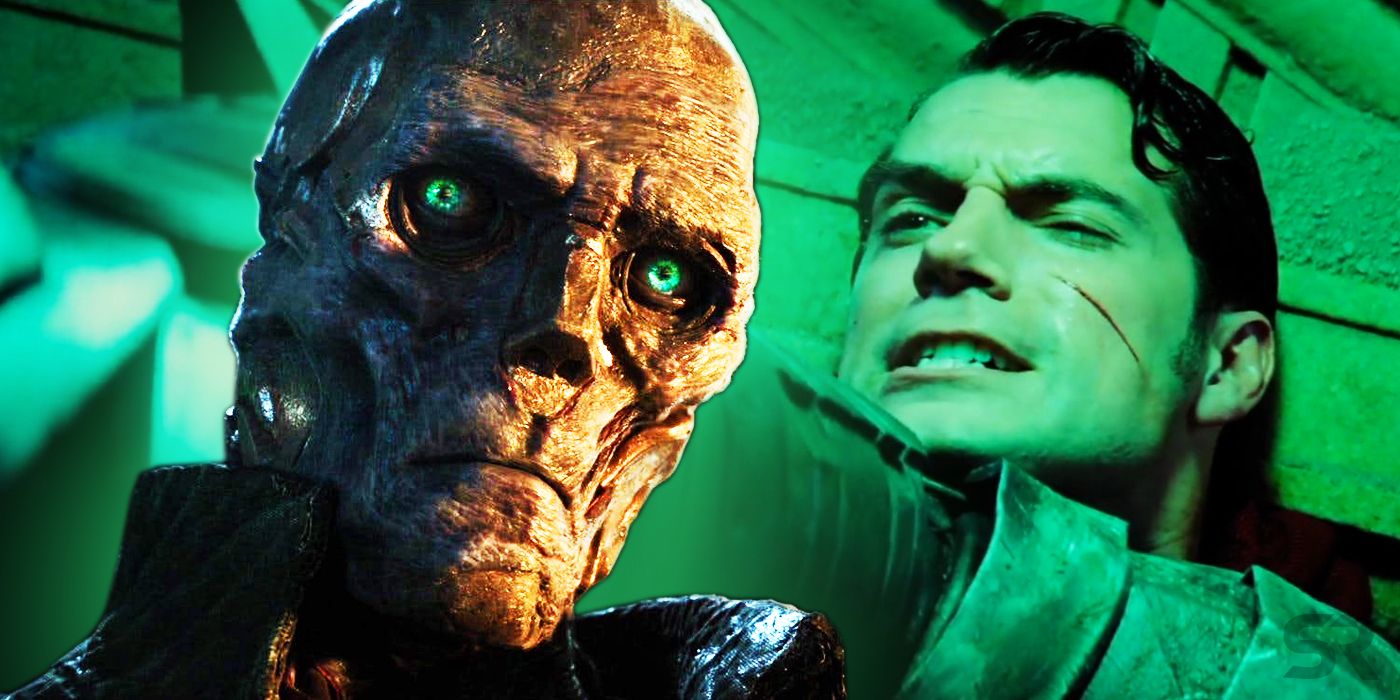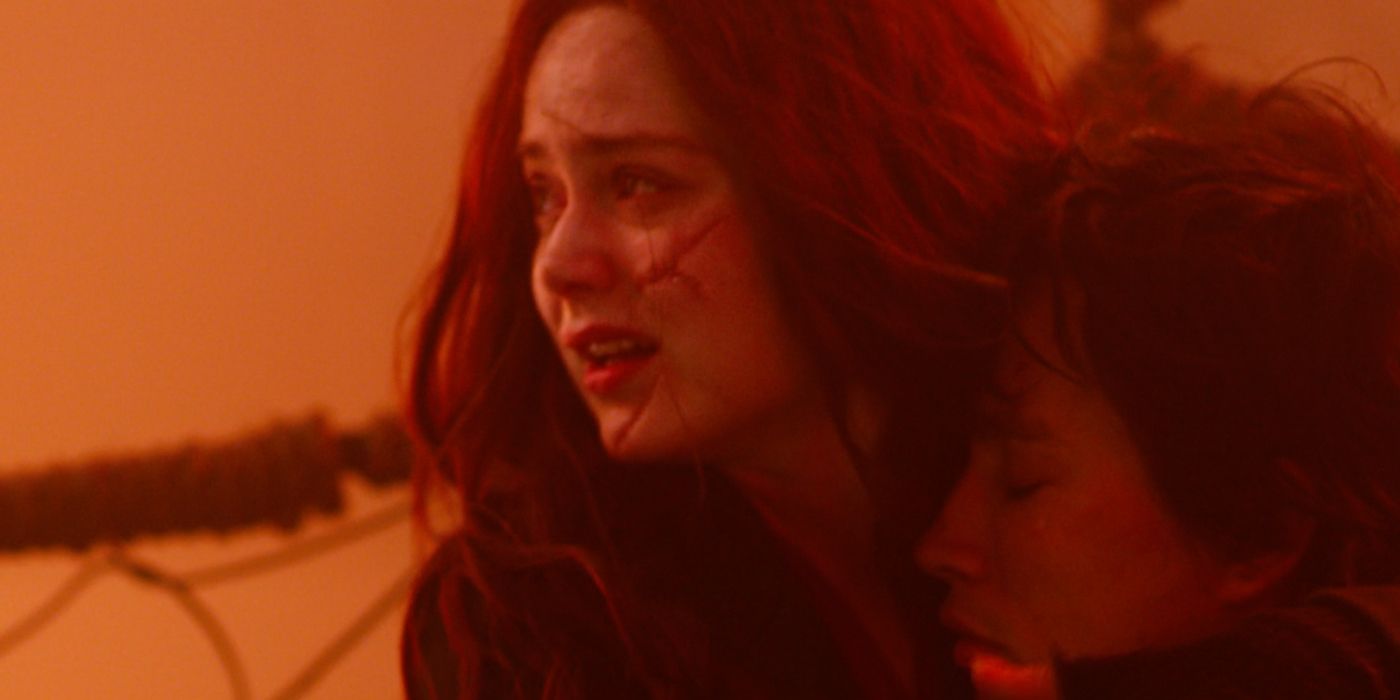
WARNING: Spoilers ahead for Mortal Engines.
Mortal Engines accidentally remakes the infamous Martha scene from Batman v Superman. Although the blockbuster's biggest comparison point is likely producer Peter Jackson's own work on The Lord of the Rings and The Hobbit - it's another epic fantasy world with a deep mythology and grand tale within it - one moment can only be likened to the DCEU blockbusters.
Undoubtedly the most infamous part of Batman v Superman was the culmination of the titular fight. Bruce Wayne has, with a little help from Kryptonite gas, beaten Kal-El, pinned him down with his foot and has his glowing green spear ready to plunge into the alien's chest. Just as he's about to make his move, Superman calls out his mother's name, "Martha", in a last ditch effort to ask Batman to save her. Rather fortuitously, Martha was also Bruce's mother's name and he breaks down, with Lois Lane rushing in to explain the situation finally allowing Batman to see the humanity in his foe. This is the turning point of the movie, where the World's Finest unite; Batman understands his error and Superman comes to grasp his place in the world.
Related: The DCEU Ruined Batman And Superman (But It's Not Zack Snyder's Fault)
While the basic idea of two opposing forces seeing eye to eye in a climactic moment is classical, the Martha moment was highly controversial moment for a multitude of reasons: it means Batman v Superman's entire plot hinges on a comic book coincidence; the situation established requires yet another flashback to the Wayne's death to hammer the point home; and it's overall an emotionally stunted exploration of that idea.
In Mortal Engines, Tom Natsworthy and Hester Shaw travel to the floating city of Airhaven, where they are hunted down by Shrike, a Resurrected Man (a steam-punk twist on a cyborg) who once loved and now wants to kill Hester. He sets the city ablaze and cuts the heroes off as they rush to an airship to escape, pinning down Tom with his severed foot and preparing to enact a killing blow. He's only stopped by Hester's pleas, which make him realize that she's fallen in love with Tom. Reminding his own relationship to his daughter, he stops and shuts down.

The parallels to Batman v Superman's Martha moment should be obvious. You have a hero pinned down by a well-meaning-but-misguided, semi-robotic figure who is so blinded that they will kill to protect what they believe in. It's only a plea for help that taps into his deeper humanity, stopping him dead as he discovers a personal connection to his own last. There's deeper stylistic parallels too: Shrike's eyes bathe the scene in green light comparable to Batman's Kryptonite spear, while Hester's facial scar (toned-down from the book) reminds of Superman's injury. Once observed, it's impossible to watch Mortal Engines without making the comparison.
What's different, of course, is the purpose of the scene. Both take place about two-thirds of the way through their runtime, leading into a final act that this decision powers. However, in Mortal Engines, the character undergoing the moment of realization is the villain, making it the reflection on the heroes that matters. Some would argue that's also true of Batman v Superman, which attempted to make the murderous Bruce Wayne a proper antagonist, but that balance is never struck; in Dawn of Justice, the Martha moment shapes both characters going into the final battle. This means it defines the DC film considerably more, even if Shrike may be one of the best-regarded aspects of Mortal Engines.
Related: The Most Brutal Reviews of Peter Jackson's Mortal Engines
Ultimately, what's so striking is that for all the effort put into building the story to these crescendos, neither moment fully works. In Mortal Engines, this is a last gasp of emotion too late to keep the movie going, while Batman v Superman is so confused in how its divided its characters in the previous two hours, something so simple is jarring. But it also speaks more to a medium issue. The sudden moment of realization is a classic trope, but by putting it so in the moment it sacrifices a lot of the realism that both movies are attempting to go for. This is the sort of thing that could work in a book or a comic (although neither scene originates from either movies' source), but on the big screen needs to have the correct world framing.
Nobody would fault Christian Rivers or Zack Snyder for their devotion to world-building, but both Mortal Engines and Batman v Superman could have been with a bit more thought put into the story and characters so such pivots of convenience don't define the movie.
Next: Screen Rant's Mortal Engines Review
from ScreenRant - Feed https://ift.tt/2QUttxQ


0 Comments